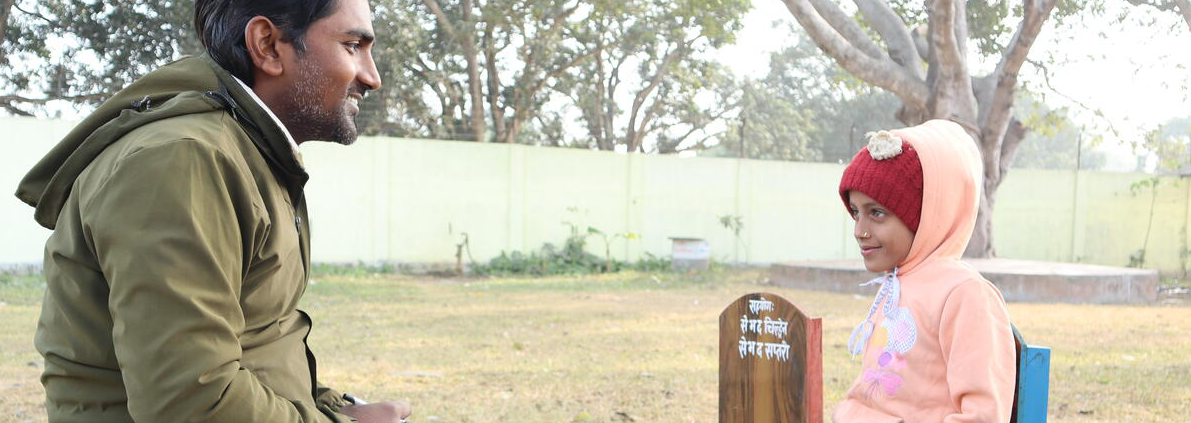कोविड-19 के दौरान सबसे कमज़ोर बच्चों को अनोखे जोखिमों का सामना करना पड़ा: एजेंसियों ने कम संसाधन और मानवीय सेटिंग्स में पेरेंटिंग पर समुदायों के साथ कैसे संवाद किया
लेखक: READY, संयुक्त राष्ट्र ड्रग्स एवं अपराध कार्यालय, जॉन्स हॉपकिन्स संचार कार्यक्रम केंद्र, खेलने का अधिकार, अंतर्राष्ट्रीय बचाव समिति
साक्ष्य बताते हैं कि कम संसाधन और मानवीय सेटिंग्स में बच्चों ने SARS-CoV-2 (COVID-19) महामारी के दौरान घर में मानसिक स्वास्थ्य बोझ और हिंसा का अनुभव किया, जिसने उनके स्वास्थ्य और विकास को प्रभावित किया हो सकता है। मानवीय प्रतिक्रिया एजेंसियों के लिए, इस महामारी के दौरान बाल संरक्षण सेवाओं का संचालन COVID-19 संचरण के जोखिम से संबंधित सुरक्षा चिंताओं और सामाजिक और सार्वजनिक स्वास्थ्य उपायों से जुड़े तार्किक मुद्दों से बाधित था। यह पत्र बताता है कि एजेंसियों ने बच्चों के सामने आने वाले पहचाने गए जोखिमों पर कैसे प्रतिक्रिया दी, बीमारी और रोकथाम के बारे में शिक्षित करने, सकारात्मक पेरेंटिंग वातावरण को प्रोत्साहित करने और बच्चों पर नकारात्मक प्रभावों को कम करने के लिए बाल संरक्षण हस्तक्षेपों में दूरस्थ जोखिम संचार और सामुदायिक जुड़ाव दृष्टिकोण और माता-पिता और देखभाल करने वालों के साथ सुरक्षित व्यक्तिगत संवादों को एकीकृत किया।
पेपर को English में देखें यूरोपियन सोसायटी ऑफ मेडिसिन की वेबसाइट पर।


यह वेबसाइट अमेरिकी लोगों के सहयोग से संभव हुई है यूनाइटेड स्टेट्स एजेंसी फॉर इंटरनेशनल डेवलपमेंट (यूएसएआईडी) रेडी पहल के तहत। रेडी (संक्षिप्त नाम नहीं) यूएसएआईडी द्वारा समर्थित है लोकतंत्र, संघर्ष और मानवीय सहायता ब्यूरो, अमेरिकी विदेशी आपदा सहायता कार्यालय (ओएफडीए) और इसका नेतृत्व किया जाता है बच्चों को बचाएं के साथ साझेदारी में मानवीय स्वास्थ्य के लिए जॉन्स हॉपकिन्स केंद्र, द संचार कार्यक्रमों के लिए जॉन्स हॉपकिन्स केंद्र, यूके-मेड, इकोहेल्थ एलायंस, और दया मलेशिया. इस वेबसाइट की सामग्री सेव द चिल्ड्रेन की एकमात्र जिम्मेदारी है। इस वेबसाइट पर दी गई जानकारी आवश्यक रूप से यूएसएआईडी, किसी या सभी कंसोर्टियम भागीदारों या संयुक्त राज्य सरकार के विचारों को प्रतिबिंबित नहीं करती है, और यह अमेरिकी सरकार की आधिकारिक जानकारी नहीं है।


